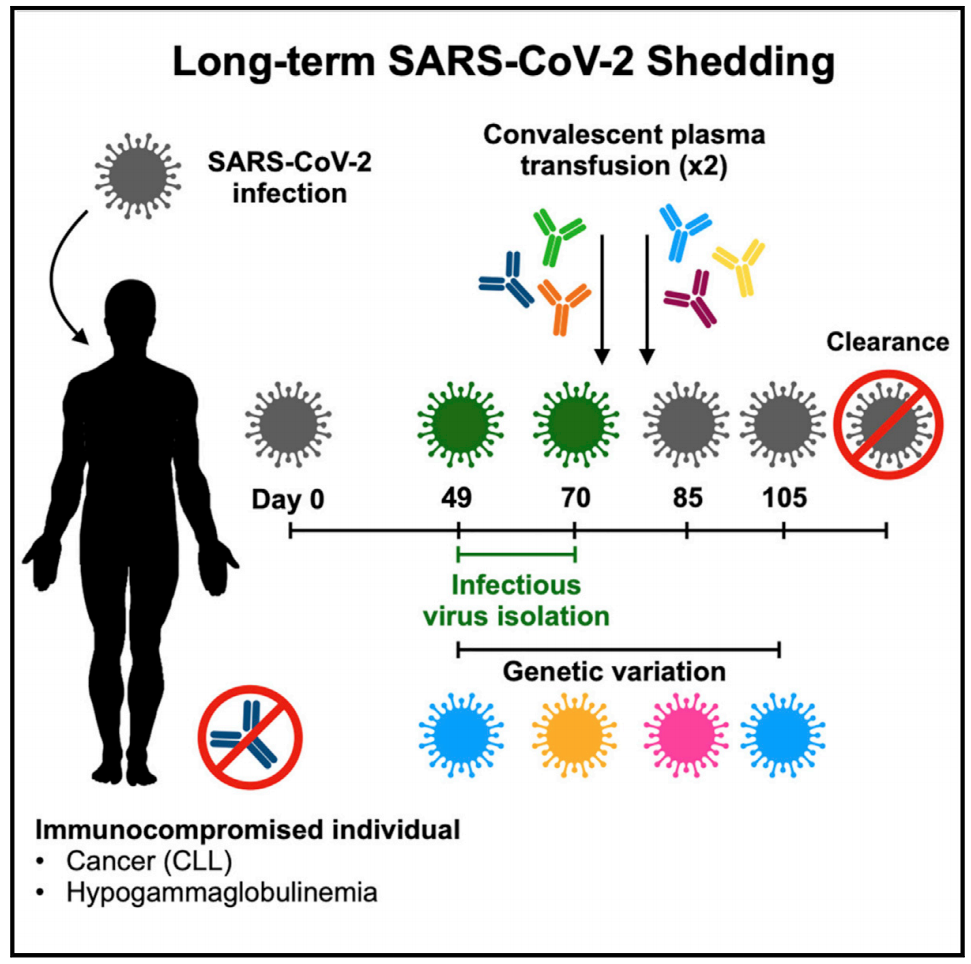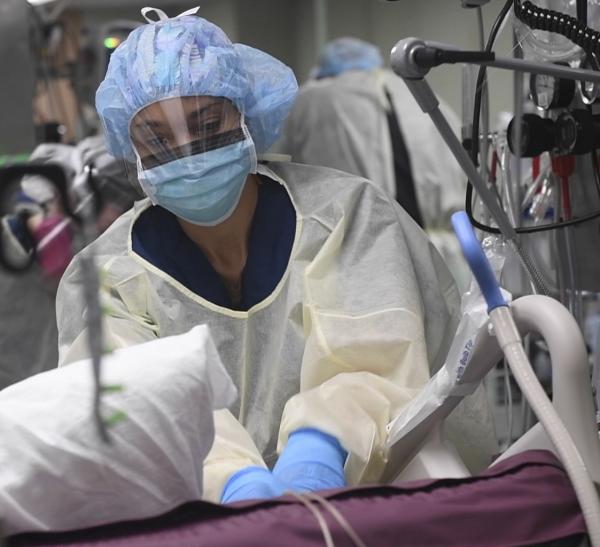One of the main reasons that the coronavirus pandemic is so difficult to stop is because of the high prevalence of asymptomatic carriers. These are people who are infected with the virus and show no symptoms, yet can spread the virus to others. "Typhoid Mary" was the most infamous asymptomatic carrier in history.
New data from the CDC suggests that more than 50% of COVID transmissions are from asymptomatic and presymptomatic people. (Presymptomatic people are those who are infected but not yet symptomatic. While asymptomatic people will never show symptoms, presymptomatic people eventually will.) The CDC also estimates that those with mild to moderate COVID are likely infectious for about 10 days, while those with severe COVID may be infectious for 20 days.
 But a new paper written by a team led by Victoria Avanzato and Vincent Munster describe the unusual case of an immunocompromised cancer patient who shed SARS-CoV-2 for an astounding 105 days. The case study is published in the journal Cell.
But a new paper written by a team led by Victoria Avanzato and Vincent Munster describe the unusual case of an immunocompromised cancer patient who shed SARS-CoV-2 for an astounding 105 days. The case study is published in the journal Cell.
The patient, a 71-year-old woman with a type of cancer known as chronic lymphocytic leukemia, was admitted to the emergency room in mid-February for pain related to her cancer. She underwent surgery and was sent to a rehab facility, but shortly thereafter, a COVID outbreak occurred at the facility. On March 2 (Day 0 in the diagram), she tested positive for coronavirus.
She was tested over the next several weeks for the presence of viral particles and for infectiousness. These are not the same thing. The reason is because the test for the presence of viral particles (often a form of PCR, which is highly sensitive) can detect the tiniest traces of virus, but that doesn't mean a person is infectious because he or she may not be shedding enough virus to infect another person. To determine infectiousness, therefore, the authors also used the patient's samples to infect human cells in a test tube.
The team discovered that the patient was secreting enough viral particles to be infectious for 70 days. (While she was not tested in this manner from Days 0 to 49, she was presumed infectious.) She kept secreting viral particles -- though not enough to be infectious -- for 105 days.
Lessons to Be Learned
There are at least three major takeaways from this case study. First, immunocompromised patients can shed viral particles, often enough to be infectious, for months. Second, the same might be true for asymptomatic patients, especially if they are unknowingly immunocompromised. Third, a positive PCR test -- which can detect the tiniest amount of virus -- does not confirm that a person is actually infectious. The latter two points make controlling the virus especially challenging.
Source: Victoria A. Avanzato, et al. "Case Study: Prolonged infectious SARS-CoV-2 shedding from an asymptomatic immunocompromised cancer patient." Cell. Available online: 4-November-2020. DOI: 10.1016/j.cell.2020.10.049




